Discounting the comedic outing of Abbott and Costello Meet the Invisible Man, this would be the last in the series of Invisible Man movies from Universal, and we can be thankful for that because this water-downed instalment was more a psychotic pot-boiler about revenge than it was a decent science fiction flick about an invisible man. We are only lucky that John Carradine makes an appearance as a mad scientist or the film would have been a complete write-off.
“In this house, you have to believe what you can’t see,” and with those prescient words, from the great John Carradine, we are off to the races with this fourth and final Invisible Man movie. In this outing, we must follow the murderous adventures of psychiatric hospital escapee Robert Griffin (Jon Hall) who is seeking revenge against those that have wronged and betrayed him. The most interesting thing about The Invisible Man’s Revenge is that the plot while overly complicated is also rather underwritten, the film starts with escapee Griffin arriving in London and making a house call to the home of his old business partners Sir Jasper Herrick (Lester Matthews) and Lady Irene (Gale Sondergaard), where he accuses them of leaving him for dead in Africa and keeping his share of the diamond he discovered. When he demands full restitution Lady Irene drugs the poor bastard, then they steal evidence of their partnership and callously throw Griffin out of their house where nearly drowns in a nearby river. Lucky for him, he is saved by a local Cockney cobbler by the name of Herbert Higgins (Leon Errol), who sees the plight of Griffin as a chance to make some good money.
“You aren’t homicidal by any chance?”
Plans to get what is rightfully owed him fail miserably, due to the dubious talents of a hired shyster and a half-assed blackmail attempt, and then to make matters worse the local chief constable (Leonard Carey) declares Griffin's claims to the Herricks' estate as void and orders him to leave his jurisdiction. Things look hopeless until Griffin stumbles across the home of enthusiastic scientist Doctor Peter Drury (John Carradine), whose questionable research in invisibility has resulted in a menagerie of invisible animals, but with Griffin’s arrival he is able to make the jump to human trials, unfortunately, Drury’s scientific over-eagerness causes him to overlook his volunteer’s mental state and before you can call up H.G. Wells we have a crazed invisible man on our hands, one bent on revenge against the Herricks. But that’s not all, he also wants Jasper to hand over his daughter Julie (Evelyn Ankers) to him in marriage, needless to say, this kind of plan is bound to have complications, such as it’s hard to get a woman to see you as husband material when she can’t actually see you, of course, Griffin won’t let such trivialities as that stand in his way.
Do think Harrods Department Store stock Invisible Man bandages and glasses?
Stray Observations:
• Despite having the same surname as three other “Invisible Men” Robert Griffin bears no relation to those people, so we must assume that simply having the “Griffin” name is going to lead to invisibility no matter what.
• It’s a bit of strange casting to have Jon Hall play the villainous invisible man in this film when he had already played the heroic invisible man in The Invisible Agent.
• A fugitive wanted for murder who keeps press clippings of his crimes in his own coat pocket is either someone who subconsciously wants to be caught or he’s a complete idiot.
• An invisible dog coming in from the rain would show more than his harness floating mysteriously in the air as the water on his fur coat would shimmer in the light, making the dog more translucent than invisible. Later Griffin uses water from an aquarium to make himself “visible” so clearly the writers understood the concept.
• As is the case with this entire series, the whole "Invisible Man" idea makes no sense as the eyes of an invisible man could not reflect or refract light and if his eyes don't refract light he would be blind.
“Does anyone know where I can get a seeing-eye dog?”
What makes The Invisible Man’s Revenge stand apart from other entries in this series is two-fold, first, there is the fact that in the original it was the invisibility formula that drove Henry Griffin mad while here he was a psychotic murderer long before the injection was given to him by Doctor Drury, secondly, in The Invisible Man Returns the idea of the cure to invisibility by way of blood transfusion was introduced, but in this film, it now requires a full body transfusion and due to the nature of this being fatal to the donor we have a nice little vampire motif to bring a bit of extra darkness to the proceedings. Sadly, those differences are not enough to make this chapter in the Invisible Man series more than an odd curiosity and even John Carradine cannot elevate this mess of the script.
He's not even a mad scientist, it’s more a case of him being naively stupid.
Overall, this entry is only notable for the somewhat interesting blood transfusion cure, which is only temporary thus Griffin is required to murder again and again if he wants to remain visible, and while the invisible man effects aren’t terrible they’d already been done better in previous entries. What really hurts the film is the plethora of useless side characters, most notably Evelyn Ankers as the supposed love interest who has even less screen time than the invisible dog. Even the film’s ostensible hero, reporter and rival for Julie's hand Mark Foster (Alan Curtis), is so bland he may as well be invisible. I’ll grant that the idea of a psychotic murderer being granted invisibility is a frightening premise it’s just a shame that the writers failed to utilize it properly instead of creating a rather pedestrian and lacklustre outing. Overall, The Invisible Man’s Revenge is a plot in search of a middle and an end, neither of which are to be found here.
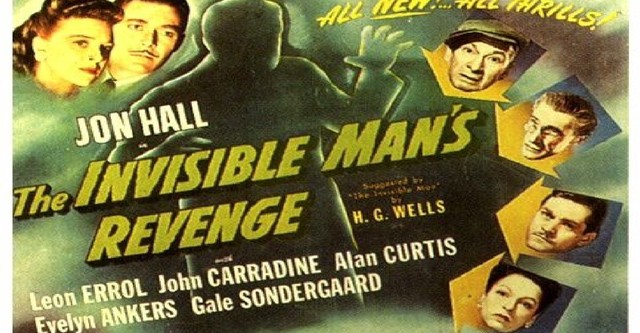
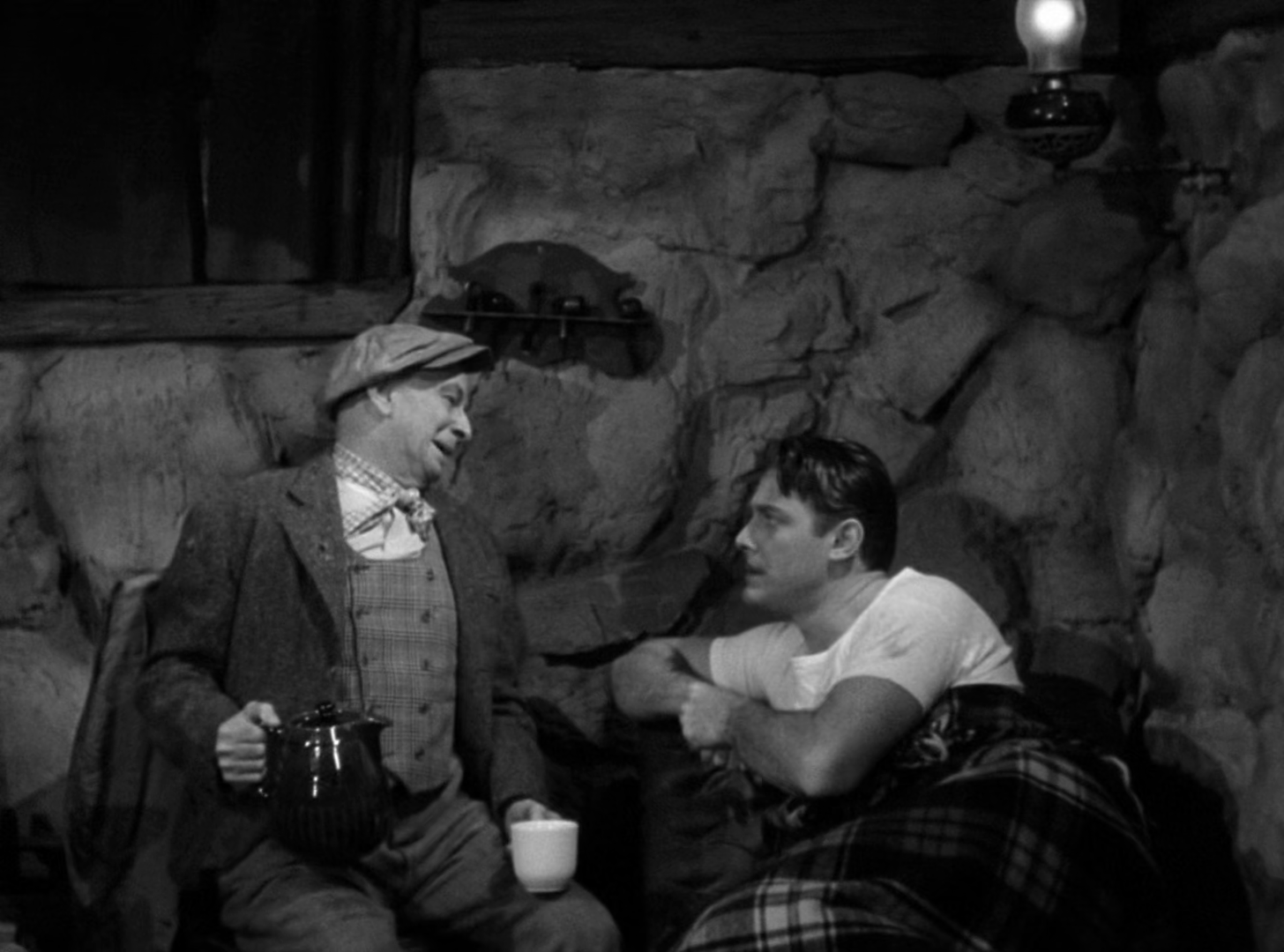
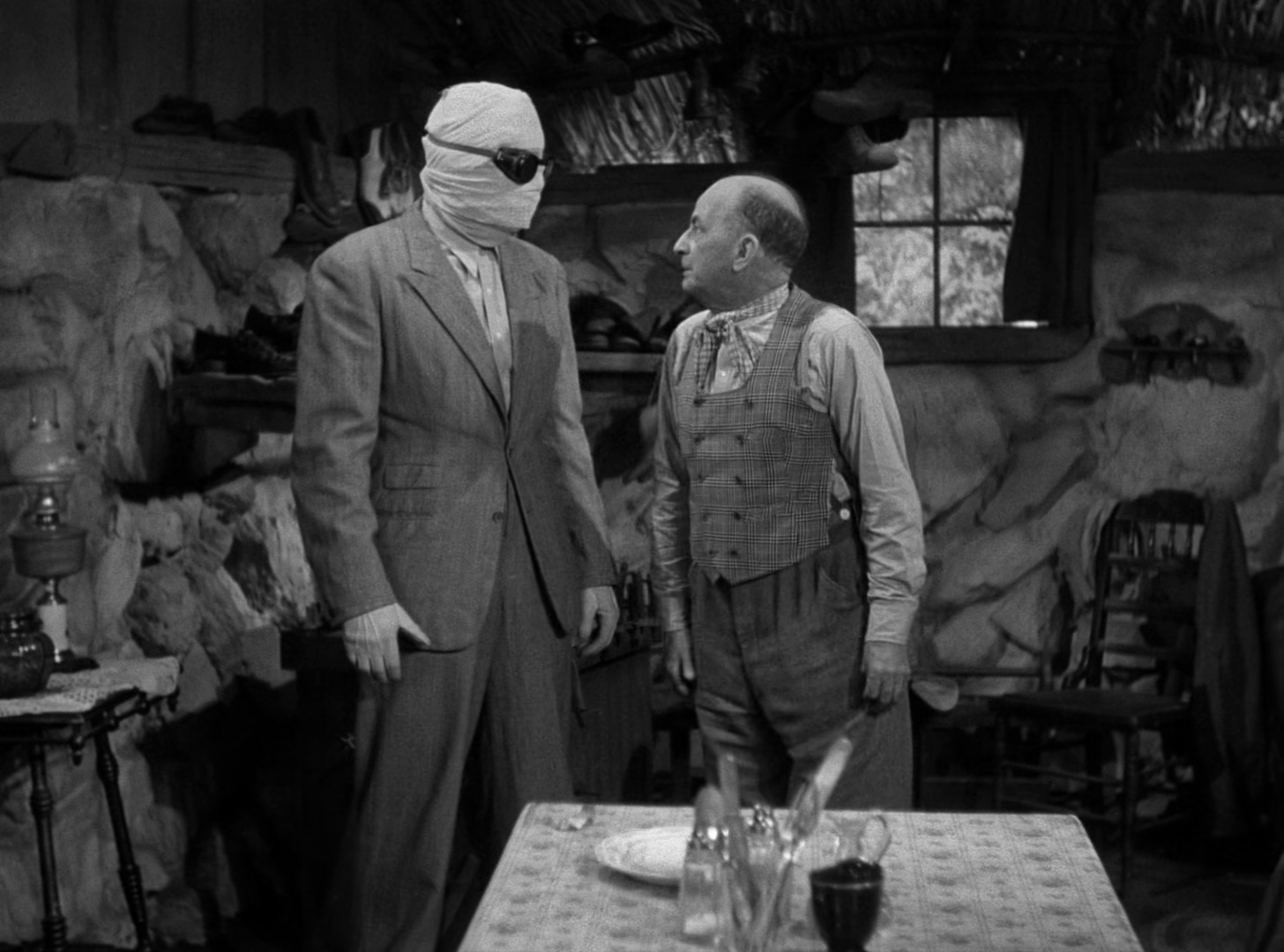
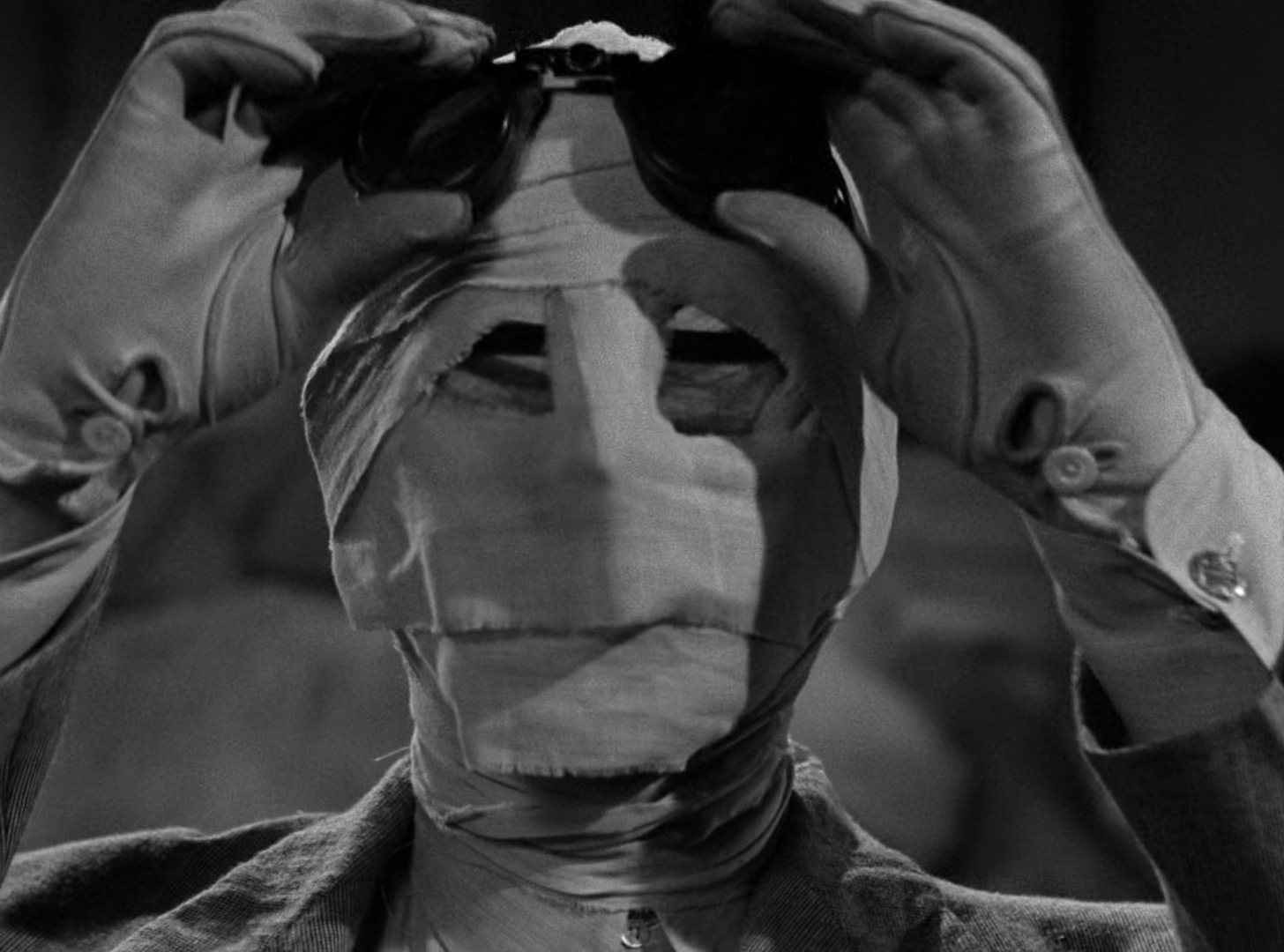
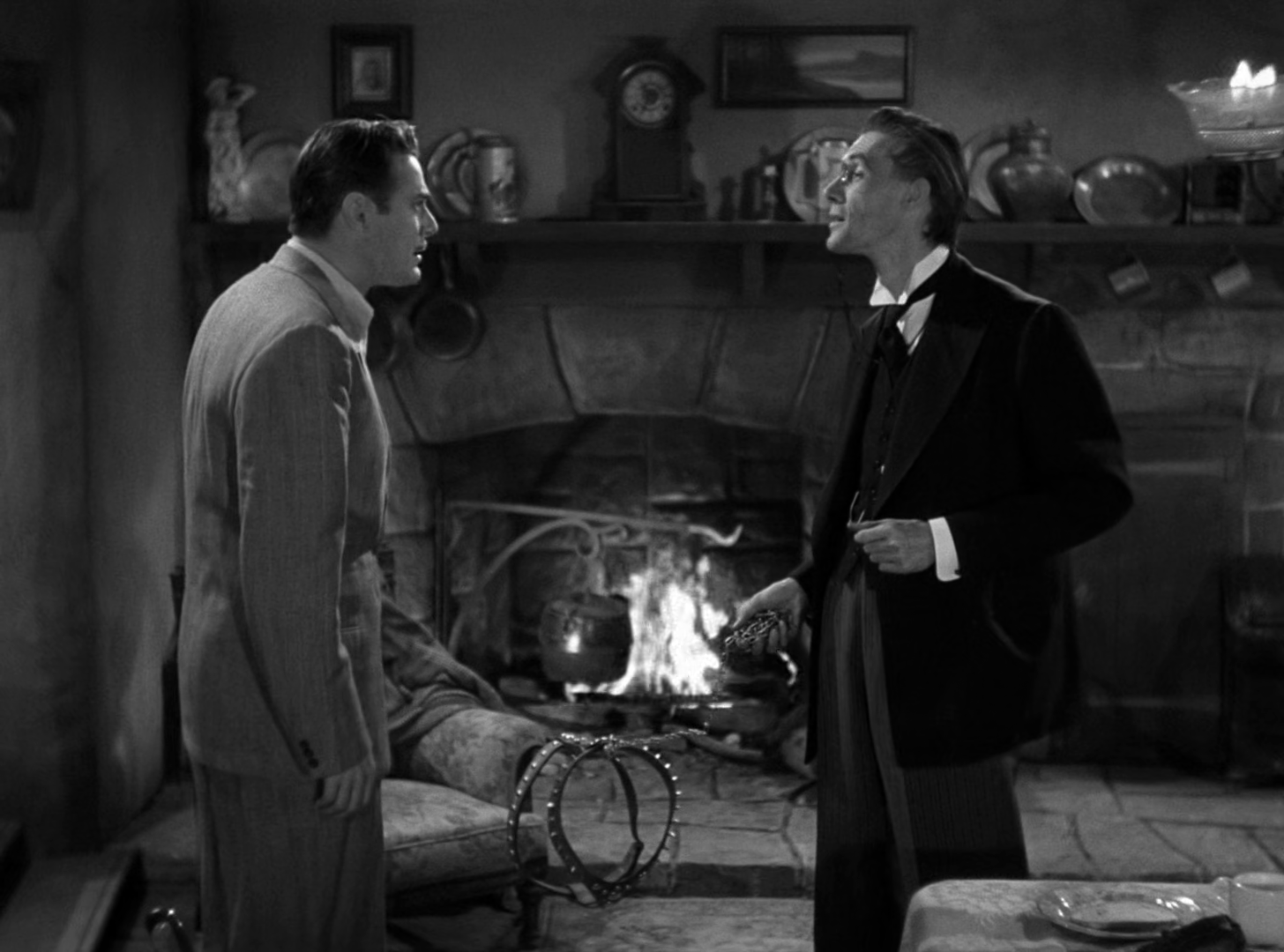

No comments:
Post a Comment